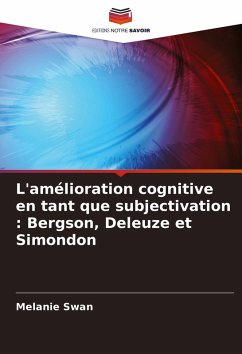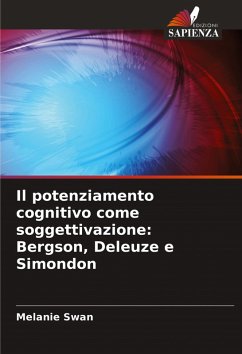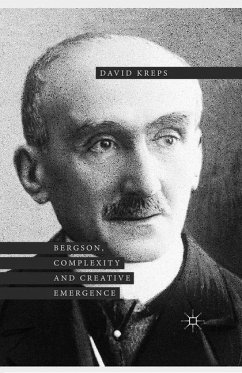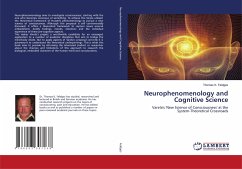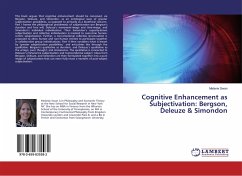
Cognitive Enhancement as Subjectivation: Bergson, Deleuze & Simondon
Versandkostenfrei!
Versandfertig in 6-10 Tagen
27,99 €
inkl. MwSt.

PAYBACK Punkte
14 °P sammeln!
This book argues that cognitive enhancement should be conceived, via Bergson, Deleuze, and Simondon, as an ontological issue of greater subjectivation possibilities, as opposed to primarily as a bioethical concern. Part I frames the philosophical problematic of subjectivation per Bergson's duration and free will, Deleuze's movement-image and time-image, and Simondon's individual individuation. Then Simondon's capacity-driven subjectivation and collective individuation is invoked to overcome human-centric subjectivation. Further, a non-emotional collective structuration is proposed to allow hum...
This book argues that cognitive enhancement should be conceived, via Bergson, Deleuze, and Simondon, as an ontological issue of greater subjectivation possibilities, as opposed to primarily as a bioethical concern. Part I frames the philosophical problematic of subjectivation per Bergson's duration and free will, Deleuze's movement-image and time-image, and Simondon's individual individuation. Then Simondon's capacity-driven subjectivation and collective individuation is invoked to overcome human-centric subjectivation. Further, a non-emotional collective structuration is proposed to allow human and non-human entities to participate together in collaborative group individuations. Part II then considers what is meant by 'greater subjectivation possibilities,' and articulates this through the qualitative: Bergson's qualitative as duration, and Deleuze's qualitative as the artsign, pure thought, and immanence. The qualitative is connected to Deleuze's immanence subjectivation and transcendental subject. Ideas from Bergson, Deleuze, and Simondon are then formulated together into a pure image of subjectivation that can more fully enact a moment of post-subject subjectivation.




